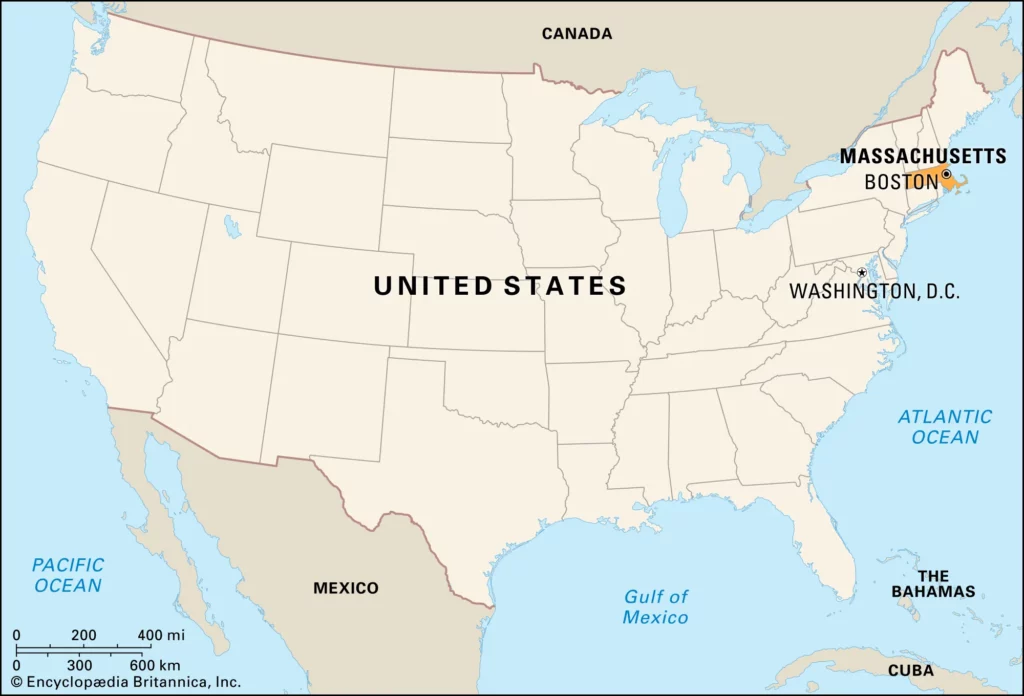
What is a Registered Agent in Massachusetts?
In Massachusetts, a Registered Agent serves as the designated individual or entity responsible for receiving important legal and tax documents on behalf of a business entity. This includes the receipt of service of process, which refers to legal action taken against the business, as well as other critical government communications, such as compliance notices and tax documents. The role of a Registered Agent is crucial for ensuring that a business remains in good standing with the state by facilitating prompt and reliable communication between the government and the business.
Key aspects of a Registered Agent in Massachusetts include:
Eligibility: A Registered Agent can be either an individual who resides in Massachusetts or a business entity authorized to do business in the state. The agent must have a physical address within Massachusetts (not a P.O. Box) where they can receive documents in person.
Legal Requirement: Appointing a Registered Agent is a legal requirement for all corporations, limited liability companies (LLCs), and other business entities registered with the Massachusetts Secretary of the Commonwealth.
Public Record: The name and address of the Registered Agent are made public, ensuring transparency and accessibility for legal and official communications.
Change of Agent: Businesses have the ability to change their Registered Agent as needed, but they must file the appropriate paperwork with the Secretary of the Commonwealth to make it official.
Importance of Accuracy: It is vital for businesses to keep their Registered Agent information up to date to avoid missing important notices or documents that could affect their legal standing or compliance with state regulations.
How can I determine if my Massachusetts business needs a Registered Agent?
In Massachusetts, businesses must have a Registered Agent if they fall into certain categories. Here are some key factors to determine if your Massachusetts business needs a Registered Agent:
Business Entity Type: If your business is formed as a corporation, limited liability company (LLC), partnership, or another formal business entity, it is generally required to have a Registered Agent in Massachusetts. This applies to both domestic (in-state) and foreign (out-of-state) entities operating in Massachusetts.
Foreign Business Activities: If your business is registered in another state but operates or conducts business in Massachusetts, known as a foreign entity, you must appoint a Registered Agent in Massachusetts to receive legal and tax documents specific to your activities in the state.
Legal Requirements: The requirement for a Registered Agent in Massachusetts is mandated by state law. Its purpose is to ensure that there is a reliable way for the state government to communicate with and serve legal documents to the business.
It is important to note that sole proprietorships and general partnerships that are not formally registered with the state may not have a statutory requirement for a Registered Agent in the same way as registered entities. However, if such businesses choose to register in Massachusetts or operate as a formal business entity, they may be subject to the Registered Agent requirement.
If you are still uncertain about whether your Massachusetts business needs a Registered Agent, you can consult with a legal professional or the Massachusetts Secretary of the Commonwealth’s office for guidance specific to your circumstances.
What does a Registered Agent do for a Massachusetts business?

A Registered Agent plays a critical role for a business in Massachusetts. The responsibilities and functions of a Registered Agent include:
Accepting Service of Process: The Registered Agent is the designated recipient for Service of Process, which includes any legal documents related to lawsuits against the business. This ensures that the business is promptly informed about any legal actions and can respond accordingly.
Receiving Government Notices: The Registered Agent receives important notices from the state, such as compliance requirements and annual report reminders. This is essential for the business to remain in good standing by complying with state laws and regulations.
Facilitating Tax Documentation: Tax notices and documents from the state are often sent to the Registered Agent. This includes essential information that helps the business fulfill its tax obligations accurately and on time.
Acting as the Official Contact: The Registered Agent serves as the business’s official point of contact with the government. This means they must have a physical address in Massachusetts where they can be reached during normal business hours.
Ensuring Privacy and Discretion: By having a Registered Agent, a business can maintain a level of privacy, particularly for small businesses or home-based enterprises. This is because the Registered Agent’s address is listed in public records, not the business owner’s personal address.
Appointing a reliable Registered Agent is crucial for the smooth operation of a business in Massachusetts, as it ensures that the company stays informed about legal obligations, deadlines, and other critical communications.
Are there any legal requirements specific to Massachusetts when selecting a Registered Agent for my business?
Yes, Massachusetts has specific legal requirements for selecting a Registered Agent for your business. These requirements ensure that the state can reliably communicate with businesses regarding legal, tax, and compliance matters. Here are the key legal requirements for selecting a Registered Agent in Massachusetts:
Physical Presence: The Registered Agent must have a physical street address in Massachusetts, not a P.O. Box. This requirement ensures that the Registered Agent is physically present to accept important documents.
Availability: The Registered Agent must be available at the designated physical address during normal business hours to receive service of process and other official documents on behalf of the business.
Type of Agent: A Registered Agent can be either an individual who resides in Massachusetts or a legal entity that is authorized to do business in Massachusetts. If the Registered Agent is a legal entity, such as a corporation or an LLC, it must comply with Massachusetts’s registration requirements to offer Registered Agent services.
Consent to Serve: While Massachusetts law does not explicitly require a formal consent form from the Registered Agent, it is a best practice (and required by some states) to have the Registered Agent’s consent to avoid disputes or issues arising from non-compliance. Ensuring that your Registered Agent has agreed to serve in this capacity and understands their responsibilities is crucial.
Selecting a Registered Agent who meets these legal requirements is essential to maintain compliance with Massachusetts state laws and to facilitate timely communication regarding legal actions, tax documents, and compliance notices related to your business.
How often should a Massachusetts business update its Registered Agent information?

In Massachusetts, businesses should update their Registered Agent information whenever there are changes to the Registered Agent’s name, address, or availability. There is not a set frequency, like annually or biennially, for updating this information; rather, updates should be made as changes occur to ensure compliance and maintain effective communication with the state. Promptly updating Registered Agent information is crucial for:
Maintaining Legal Compliance: Massachusetts law requires that businesses have an up-to-date Registered Agent on file who can accept legal documents during business hours. Failing to update this information can lead to compliance issues or an inability for the state to contact your business.
Ensuring Timely Receipt of Legal and Tax Documents: An up-to-date Registered Agent ensures that your business receives vital legal and tax documents without delay. This is essential for responding to legal actions and fulfilling tax obligations in a timely manner.
When changes occur, you must file the appropriate forms with the Massachusetts Secretary of the Commonwealth to update the Registered Agent information. This can typically be done online or via mail.
Additionally, it’s a good practice for businesses to periodically review their Registered Agent details, such as part of an annual review process, to confirm the accuracy of the information and make any necessary updates even if no changes have been specifically noted.
What is the easiest way to get a Registered Agent in Massachusetts?
Finding a Registered Agent in Massachusetts can be straightforward and hassle-free, especially when you opt for a professional Registered Agent service. One of the easiest and most reliable ways to secure a Registered Agent for your business is through FormPros. FormPros offers a comprehensive Registered Agent service that not only meets Massachusetts’ legal requirements but also provides additional benefits to help manage your business’s legal obligations efficiently.
Here’s why you should consider using FormPros for your Registered Agent needs:
Compliance: FormPros ensures that your business remains in good standing by meeting all of Massachusetts’ requirements for acquiring Registered Agent. This includes having a physical presence in the state and being available during normal business hours to receive important legal documents.
Reliability: With FormPros’ Registered Agent Service, you can rest assured that all your important legal and state documents will be handled professionally and with care, ensuring they reach you in a timely manner.
Convenience: FormPros simplifies the process of maintaining a Registered Agent. Our service can help eliminate the hassle of paperwork, allowing you to focus more on the important aspects of running your business.
Privacy: By using FormPros, your privacy is enhanced since your home or office address need not be publicly listed on documents as the Registered Agent’s address. This can be particularly beneficial for home-based businesses.
Support: FormPros provides excellent customer support to answer any questions you might have about your Registered Agent services or to help you navigate the complexities of compliance with state laws.
Choosing FormPros for your Massachusetts Registered Agent needs means leveraging a blend of professional expertise, convenience, and reliability. This ensures that your business not only remains compliant but also has the support it needs to thrive. Visit FormPros today to explore our Registered Agent Services and how they can benefit your Massachusetts business.
How do I change a Registered Agent in Massachusetts?

Changing your Registered Agent in Massachusetts can be done by following a series of steps that ensure your business maintains compliance with state regulations. The process involves filing the appropriate documents with the Massachusetts Secretary of the Commonwealth. Here’s how to do it:
Choose a New Registered Agent: Before making any changes, ensure that your new Registered Agent meets all of Massachusetts’ legal requirements, including having a physical address in the state and being available during regular business hours.
Obtain Consent: While Massachusetts law might not explicitly require written consent from the new Registered Agent, it’s wise to have an agreement in place. This ensures that your chosen agent is willing and ready to take on the responsibilities.
File the Change of Registered Agent Form: To officially change your Registered Agent, you need to complete and file a Statement of Change of Registered Office/Registered Agent form with the Massachusetts Secretary of the Commonwealth. This form requires information about your business entity, the outgoing agent, and the incoming Registered Agent.
Pay the Filing Fee: There is a filing fee associated with the change of Registered Agent. The amount can vary, so check the current fee schedule on the Secretary of the Commonwealth’s website.
Submit the Form: You can submit the change form and fee online, by mail, or in person, depending on what’s most convenient. Online filing is often the fastest method and can expedite processing times.
Confirm the Change: After your form has been processed, confirm that the change of Registered Agent has been updated in the state’s records. You can do this by searching your business entity on the Secretary of the Commonwealth’s website.
Ensuring that your Registered Agent information is up to date is crucial for maintaining your business’s legal standing in Massachusetts. If you seek to simplify this process or ensure professional handling of your legal documents, consider using a professional Registered Agent service like FormPros.
Can I be my own Registered Agent in Massachusetts?
Yes, in Massachusetts, you can serve as your own Registered Agent for your business. However, to do so, you must meet certain legal requirements that are applicable to all Registered Agents within the state. Here are the key criteria that you need to fulfill if you decide to act as your own Registered Agent:
Physical Address: You must have a physical street address in Massachusetts. This cannot be a P.O. Box. The address must be where you can physically receive legal documents.
Availability: You need to be available at the specified Massachusetts address during normal business hours to receive legal documents in person.
Being your own Registered Agent offers certain advantages, such as potentially saving on fees that would otherwise be paid to a professional Registered Agent service. However, there are considerations to keep in mind:
Privacy: Your address will be listed in public records, which might not be desirable for everyone, especially if you’re using your home address.
Presence: You must consistently be available at the registered address during normal business hours, which could be challenging if you travel frequently or meet with clients elsewhere.
Handling Legal and Tax Documents: As your own Registered Agent, you’re responsible for ensuring that any legal actions, compliance requirements, or tax documents are addressed promptly, which requires a good understanding of these matters.
Choosing to be your own Registered Agent in Massachusetts is a feasible option if you can comply with the state’s requirements and are prepared to manage the responsibilities that come with the role. However, for those looking for convenience, privacy, and the assurance that all important documents will be handled professionally, utilizing a service like FormPros’ Registered Agent services could be a better choice.
Is it possible to appoint an out-of-state Registered Agent for your Massachusetts business?
In Massachusetts, a business must appoint a Registered Agent that has a physical presence within the state. This requirement is essential for legal and tax document delivery and compliance purposes. Therefore, appointing an individual or a company as your Registered Agent who does not have a physical address in Massachusetts is not possible. Here’s what the Massachusetts guidelines stipulate:
Physical Address Requirement: A Registered Agent must have a physical street address in Massachusetts—not just a P.O. Box. This address is where the agent will receive legal documents in person.
Availability: The agent must be available at the provided Massachusetts address during normal business hours to accept legal documents on behalf of the business.
However, an out-of-state entity or individual can serve as your Registered Agent if they have a physical address in Massachusetts that meets the state’s requirements. Many businesses fulfill this requirement by hiring a professional Registered Agent service that operates in multiple states, including Massachusetts. These services have established physical offices in the state specifically to comply with such regulations and to offer businesses a reliable way to maintain compliance with state laws.
If your business needs a Massachusetts Registered Agent and you’re considering a professional service to ensure compliance while benefiting from additional conveniences, such as privacy and flexibility, FormPros offers dependable Registered Agent services tailored to meet these needs.
Are Registered Agents from Massachusetts Responsible for Any Fees or Taxes?

In Massachusetts, the role of a Registered Agent primarily involves acting as the official recipient of legal documents and government correspondence for a business. The Registered Agent’s responsibilities are specific to receiving and forwarding documents and do not inherently include the obligation to pay fees or taxes on behalf of the business they represent. However, there are some associated costs and responsibilities to be aware of:
Filing Fees: While Registered Agents themselves are not responsible for paying the business’s taxes or filing fees, the business must pay a fee to the Massachusetts Secretary of the Commonwealth when appointing or changing a Registered Agent. It’s important for businesses to keep this in mind as part of their budgeting and compliance process.
Annual Report Fees: Businesses in Massachusetts are typically required to file annual reports and pay any associated fees. The responsibility to ensure that these reports are filed and fees are paid rests with the business, not the Registered Agent. The Registered Agent’s duty is to forward any notices or documents related to these requirements to the business.
Professional Service Fees: If a business decides to use a professional Registered Agent service, the fee for this service is agreed upon between the business and the service provider. These fees are for the services rendered by the Registered Agent and are separate from state-imposed fees and taxes the business must pay.
It’s also worth noting that while a Registered Agent is not directly responsible for paying a business’s taxes, the integrity of their role is crucial for ensuring that the business receives all legal and tax documents in a timely manner. This indirectly supports the business in maintaining compliance with tax obligations and other regulatory requirements.
In summary, while Registered Agents in Massachusetts are not responsible for a business’s taxes or state fees, they play a critical role in ensuring that the business stays informed about and can respond to financial and legal obligations. Businesses should consider the fees associated with appointing a Registered Agent and maintaining compliance as part of their operational costs.
Sign Up for a Registered Agent in Massachusetts Now
State Specific Registered Agent Service
- Alabama
- Alaska
- Arizona
- Arkansas
- California
- Colorado
- Connecticut
- Delaware
- Florida
- Georgia
- Hawaii
- Idaho
- Illinois
- Indiana
- Iowa
- Kansas
- Kentucky
- Louisiana
- Maine
- Maryland
- Massachusetts
- Michigan
- Minnesota
- Mississippi
- Missouri
- Montana
- Nebraska
- Nevada
- New Hampshire
- New Jersey
- New Mexico
- New York
- North Carolina
- North Dakota
- Ohio
- Oklahoma
- Oregon
- Pennsylvania
- Rhode Island
- South Carolina
- South Dakota
- Tennessee
- Texas
- Utah
- Vermont
- Virginia
- Washington
- West Virginia
- Wisconsin
- Wyoming
Massachusetts Registered Agent FAQs
-
Can a Massachusetts Registered Agent resign? How?
Yes, a Registered Agent in Massachusetts can resign. The agent must file a Statement of Resignation of Registered Agent with the Massachusetts Secretary of the Commonwealth and notify the business entity of their resignation.
-
What happens if my Massachusetts Registered Agent is not available when legal documents are delivered?
If the Registered Agent is unavailable, the documents may be returned, potentially leading to missed legal deadlines or compliance issues for the business. It’s crucial for the agent to be available during business hours to avoid such risks.
-
Can a business change its Registered Agent more than once in a year in Massachusetts?
Yes, there is no limit to how many times a business can change its Registered Agent within a year, as long as the appropriate change forms are filed each time with the Secretary of the Commonwealth.
-
Does my Massachusetts LLC need a Registered Agent?
Yes, all Limited Liability Companies (LLCs) in Massachusetts are legally required to appoint and maintain a Registered Agent within the state.
-
Can a Massachusetts corporation serve as its own Registered Agent?
No, a corporation cannot act as its own Registered Agent. However, an individual within the corporation, such as an officer or director who meets the requirements, can serve in this role.
-
Is a Registered Agent’s address public record in Massachusetts?
Yes, the address of the Registered Agent is part of the public record and is available through the Massachusetts Secretary of the Commonwealth’s office.
-
Are there penalties for not having a Registered Agent in Massachusetts?
Yes, failing to maintain a Registered Agent may lead to a business falling out of good standing with the state, which can result in financial penalties, the inability to bring lawsuits within the state, or even involuntary dissolution of the business.
-
How do I verify who my Massachusetts business’s Registered Agent is?
You can verify your business’s Registered Agent by checking the records online through the Massachusetts Secretary of the Commonwealth’s website or by contacting their office directly.
-
Can a Registered Agent accept mail on behalf of a Massachusetts business?
While a Registered Agent's primary role is to accept legal documents, they may also receive official state correspondence. General business mail should not be directed to the Registered Agent.
-
What duties can I expect from my Massachusetts Registered Agent aside from accepting service of process?
Apart from accepting service of process, a Registered Agent in Massachusetts may also receive official notices from the state, such as renewal reminders and compliance notifications.
-
Does a Massachusetts Registered Agent need to sign any documents?
While the Massachusetts Secretary of the Commonwealth does not explicitly require a Registered Agent’s signature to accept the designation, having documented consent can prevent disputes or misunderstandings.
-
Can a non-profit organization in Massachusetts act as its own Registered Agent?
A non-profit organization cannot act as its own Registered Agent, but an individual associated with the organization, such as an officer, can serve as the Registered Agent if they meet Massachusetts’ requirements.
-
Is there a grace period for changing a Massachusetts Registered Agent if my business moves out of state?
No specific grace period is provided; you should appoint a new Registered Agent that meets Massachusetts requirements before or immediately upon relocating your business operations out of state.
-
If my Massachusetts Registered Agent changes their address, what should I do?
You must file an update with the Secretary of the Commonwealth to reflect the new address of your Registered Agent to ensure continued compliance and receipt of important documents.
 Rated 4.8 from 14,000+ Happy Customers
Rated 4.8 from 14,000+ Happy Customers

